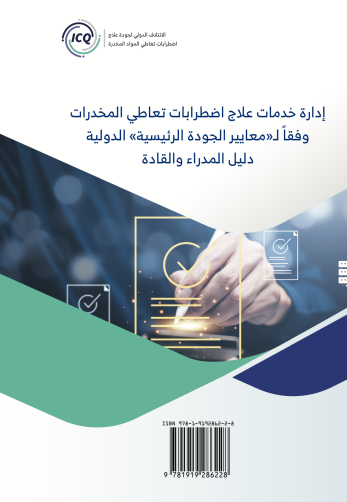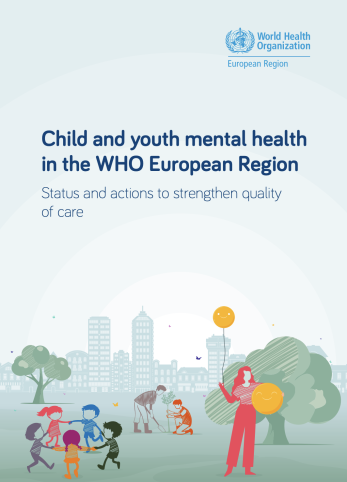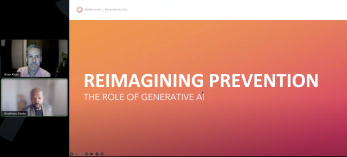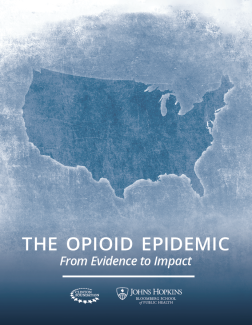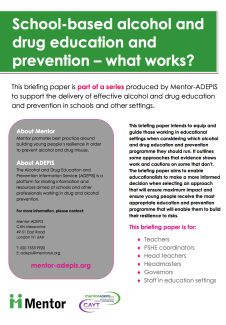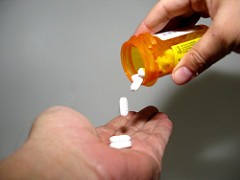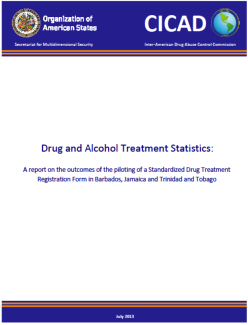
Tìm kiếm
Addiction Training in Clinical Psychology: Does It Meet the Demand?
Clinical psychology is particularly well suited to offering a multifaceted response in order to help those living with a substance use disorder. A new study published in the academic journal American Psychologist investigates the extent to...
Effectiveness Bank Drug Treatment Matrix: Creating a Lifesaving Treatment and Harm Reduction System
Online course moves on to the whole-system level, where treatment and harm reduction services working in synergy are the best hope for reversing the hepatitis C epidemic - but can any feasible local or national system succeed in this...
Engagement within a Mobile Phone-Based Smoking Cessation Intervention for Adolescents
ABSTRACT
Background: Although mobile phone-delivered smoking cessation programs are a promising way to promote smoking cessation among adolescents, little is known about how adolescents might actually use them.
Objective: The aim of this...
Novel Vaccines against Morphine Heroin
SUMMARY
Drug addiction is one of the most important health problems worldwide. This pathology results in the death of about 500,000 individuals annually around the globe. Despite this scenario, the development of effective drug therapies...
The Opioid Epidemic: From Evidence to Impact
EXECUTIVE SUMMARY
While prescription opioids serve an invaluable role for the treatment of cancer pain and pain at the end of life, their overuse for acute and chronic non-cancer pain as well as the increasing availability of heroin and...
Determining Counselling Communication Strategies Associated with Successful Quits in the 'Stop Smoking Programme' in East London
Abstract
Objectives: To determine communication strategies associated with smoking cessation in the National Health Service community pharmacy Stop Smoking programme.
Setting: 11 community pharmacies in three inner east London boroughs.
...Cognitive Complexity of Clients and Counsellors during Motivation-Based Treatment for Smoking Cessation
Abstract
Objective: Motivational interviewing (MI) is a widely used and promising treatment approach for aiding in smoking cessation. The present observational study adds to other recent research on why and when MI works by investigating a...
Efficacy and Safety of Cannabinoid Oromucosal Spray for Multiple Sclerosis Spasticity
Abstract
Background: The approval of 9-δ-tetrahydocannabinol and cannabidiol (THC:CBD) oromucosal spray (Sativex) for the management of treatment-resistant multiple sclerosis (MS) spasticity opened a new opportunity for many patients. The...
The Effectiveness of Injectable Extended-Release Naltrexone vs Daily Buprenorphine-Naloxone for Opioid Dependence
Key Points
Question: Are monthly intramuscular injections with extended-release naltrexone hydrochloride as effective as daily oral buprenorphine–naloxone hydrochloride in reducing the use of heroin and other illicit substances in newly...
Unmet Treatment Needs for People with Mental Health and Substance Use Disorders
In the US, less than 10% of adults with co-occurring mental health problems and substance use disorders get treatment for both. 50% do not receive treatment for either.
This highlights the vast discrepancy between the prevalence of co...
The Brain Under Construction – A Window into the Developing Brain
The Brain Under Construction – A Window into the Developing Brain is a new debriefing paper by Mentor-Adepis. It forms part of a mini-series on the ‘Brain Under Construction’, which is geared towards helping professionals to better...
School-Based Alcohol and Drug Education and Prevention – What Works?
School-Based Alcohol and Drug Education and Prevention – What Works? is a new briefing paper published by Mentor-Adepis. It outlines several approaches that have been shown to work effectively, and issues cautions about those that have not...
Social Media in the Classroom: An Experiential Teaching Strategy to Engage and Educate
Abstract
This article outlines an approach to engaging and educating college students through the use of social media. The project is designed for a substance use course at the college/university undergraduate level. However, it could be...
‘My GP says I drink too much’: Screening and Brief Intervention
In the absence of greater obstacles to availability, widespread screening to identify and then briefly advise risky drinkers has been the great hope for improved alcohol-related public health. This major hot topic update guides you through...
Financial Incentives to Discontinue Long-Term Benzodiazepine Use
Abstract
Objectives: Investigate the acceptability of financial incentives for initiating a medically supervised benzodiazepine discontinuation programme among people with long-term benzodiazepine use and to identify programme features...
8 Steps Towards Minimising the US Opioid Crisis
Current levels of opioid addiction in the US are so alarming that in July 2017 the President’s Commission on Combating Drug Addiction and the Opioid Crisis urgently suggested that President Trump declare a national emergency to free up...
Drug and Alcohol Treatment Statistics
Executive Summary
Data collected in drug treatment agencies play a prominent role in informing policy makers. Such data often represent the only information collected regularly and consistently over a certain period of time. What is even...
Effectiveness Bank Drug Treatment Matrix Cell C1: Life and Death Decisions for Drug Harm Reduction Management
Explores how harm reduction impacts are affected by the management of the service and of the intervention. Highlights the studies which showed that treatment-termination and needle-exchange policies can mean life or death for service users...
Brief Intervention to Promote Smoking Cessation and Improve Glycemic Control in Smokers with Type 2 Diabetes
Abstract
The aim of the study was to examine the effects of a brief stage-matched smoking cessation intervention group compared with a control group (with usual care) in type 2 diabetes mellitus patients who smoked by randomized controlled...
Effectiveness of Optional Videoconferencing-Based Treatment of Alcohol Use Disorders
ABSTRACT
Background: Treatment of alcohol use disorders (AUDs) is characterized by an adherence rate below 50%. Clinical research has found that patient adherence enhances treatment effect; hence, health authorities, clinicians, and...
Share the Knowledge: ISSUP members can post in the Knowledge Share – Sign in or become a member
